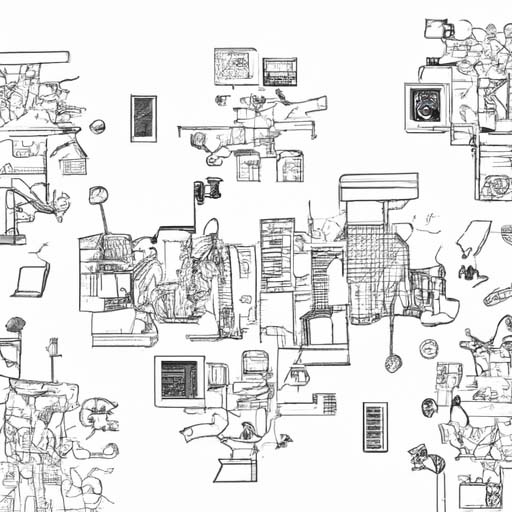
The business world is constantly evolving, and technology plays a vital role in these changes. One of the most significant trends shaping business operations today is automation. With advancements in artificial intelligence, machine learning, and robotics, automation is revolutionizing various industries. This comprehensive guide aims to provide a deeper understanding of how automation is reshaping the business world and its impacts on enterprises.
The Rise of Automation
Automation has become a buzzword in recent years, and for a good reason. Organizations are increasingly adopting automation technologies to streamline processes, boost efficiency, and reduce costs. By automating repetitive and mundane tasks, businesses can free up their workforce to focus on higher-value activities.
Key Technological Drivers
Several technological advancements have paved the way for the widespread adoption of automation:
- Artificial Intelligence (AI): AI powers automation by enabling machines to perform tasks that require human intelligence. Machine learning algorithms allow AI systems to learn from data and make informed decisions.
- Robotics: Robots are being deployed across various industries to perform physical tasks with precision and efficiency. With advancements in robotics, machines are becoming more dexterous and adaptive.
- Internet of Things (IoT): IoT devices are interconnected and can communicate with each other, enabling the automation of various processes. This connectivity enhances efficiency and enables real-time data-driven decision-making.
Impacts on Business Operations
Automation has far-reaching implications for businesses. It is transforming the way organizations operate and creating new opportunities. Here are some key impacts:
- Increased Efficiency: Automating repetitive tasks reduces the risk of human errors and speeds up processes. This results in improved overall efficiency and productivity.
- Cost Savings: Automation eliminates the need for manual labor, reducing labor costs in the long run. It also helps businesses save on operational costs by optimizing resource utilization.
- Enhanced Accuracy: Machines are programmed to perform tasks with precision and consistency, minimizing errors and improving accuracy.
- Improved Customer Experience: Automation enables businesses to provide faster and more personalized services to customers. This can lead to higher customer satisfaction and loyalty.
Challenges and Considerations
While automation offers numerous benefits, it also presents challenges that businesses must navigate. It is crucial to understand and address these considerations to maximize the benefits of automation:
- Workforce Adaptation: As technology advances, the workforce must acquire new skills to stay relevant. Companies need to invest in upskilling and reskilling initiatives to ensure a smooth transition.
- Data Security and Privacy: Automation relies heavily on data, making data security and privacy paramount. Businesses must implement robust cybersecurity measures and comply with relevant regulations.
- Ethical Implications: Automation raises ethical concerns, such as job displacement and the impact on societal well-being. Organizations need to approach automation ethically and consider the broader implications.
Future Trends in Automation
The automation landscape continues to evolve rapidly. Here are some emerging trends to watch out for:
- RPA and Intelligent Process Automation (IPA): Robotic Process Automation (RPA) is gaining traction, allowing businesses to automate repetitive tasks. Intelligent Process Automation (IPA) takes it a step further by combining AI and RPA to automate complex business processes.
- Hyperautomation: Hyperautomation involves integrating multiple automation tools and technologies to create an end-to-end automation ecosystem. It aims to automate entire business processes seamlessly.
- AI-Powered Chatbots: Chatbots leveraging AI capabilities are becoming more prevalent. They can provide instant customer support, handle inquiries, and streamline communication.
Conclusion
Automation is reshaping the business world, and its impact on enterprises cannot be underestimated. By embracing automation and leveraging technological advancements, businesses can unlock new levels of productivity, efficiency, and innovation. However, it is essential to navigate the challenges and ethical considerations that come with automation. Staying informed about the latest trends in automation will help businesses stay ahead in this rapidly evolving landscape.